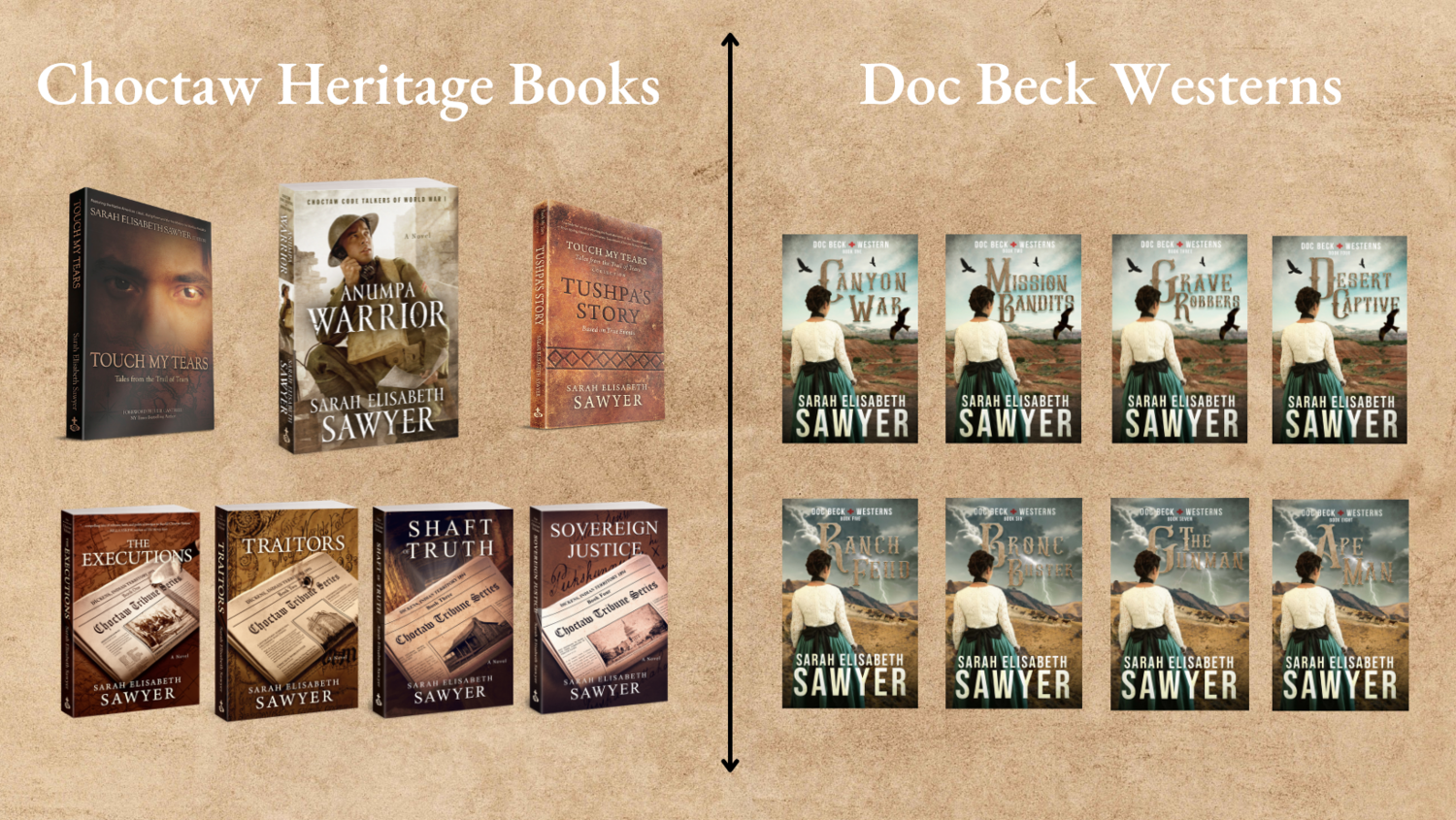Since I write (and read) a great deal of historical fiction, I’ve had several questions on exactly what historical fiction is and how I use this genre. Here are my answers.
What is Historical Fiction?
This genre presents historical events, but in an entertaining fashion. With my Choctaw fiction, I take true stories and present them in a way the mainstream public will be attracted to reading while remaining historically and culturally accurate. As a result, my fiction educates the public in our real history, not just what they learned in school or from Hollywood about Native people. I’m also striving to preserve these stories before they’re forgotten forever with the passing of our elders.

An example of historical fiction based on a true story is A Woman Called Moses. This had tremendous impact on people who were unaware of the depths of evil and triumph during this time period. Brock and Bodie Thoene’s Jerusalem Chronicles comes to mind as well Gone with the Wind, and many others.
My family has spent years researching our Chahta (Choctaw) history, and cry over the stories we’ve found. I still cry when I read the first Removal story I wrote, a story that captures the moment in time when one of my great grandfathers was put out of the wagon, left to die.
Historical fiction can also feature completely fictional characters as in Gone with the Wind. In that story are real events in history but show the lives of made up characters. This is the majority of historical fiction you find today, and I enjoy both reading and writing it.
Why Does Historical Fiction Matter?
There’s truth in fiction. Sometimes more than we want to admit. But it’s a safe way to learn and experience truth about ourselves, our struggles, and our faith.
Nonfiction gives it to the reader straight, a great approach to subjects and themes relating to the human soul. Still, confronting a subject head-on is something we don’t like, especially if it’s unpleasant or downright horrible truths about ourselves.
Enter fiction. We step back and read someone who is more real than our next door neighbor and recognize bits and pieces of our own heart in action. We see ourselves from a safe distance.
Cancer, loss of job, car accidents. What good can come of the trials and troubles beating our already weary bodies back into the dirt from which we came? In the midst of crisis, a direct message or true to life story draws too real of a comparison with our own situation. The pain deepens with the continual burn of “why?”
Enter fiction. The more realistic, the better, yet it still lets us hold the pages away from our wounds while applying a salve we didn’t know it contained. We evaluate our agony from a safe distance.
What of faith—or lack of? Who is God? What is His place or power in my life? How can He restore a heart as broken and reeking of garbage as mine? Why so many questions? Do I really want to know the answers?
Enter fiction. Hiding behind the words of a make believe world, we peek out at the interactions between a Father and child. We watch and wonder. We may even pray, because our questions about God were asked and answered from a safe distance.
When we see things from a distance, it suddenly feels safe to take a closer look at ourselves, our troubles, our God, all through the safety of fiction woven into the fabric of truth. That’s the power of fiction, and why historical fiction matters.
***
You can find historical fiction based on my Chahta ancestry here: My Books.
Join my monthly newsletter and receive a free eBook copy of Touch My Tears: Tales from the Trail of Tears.


